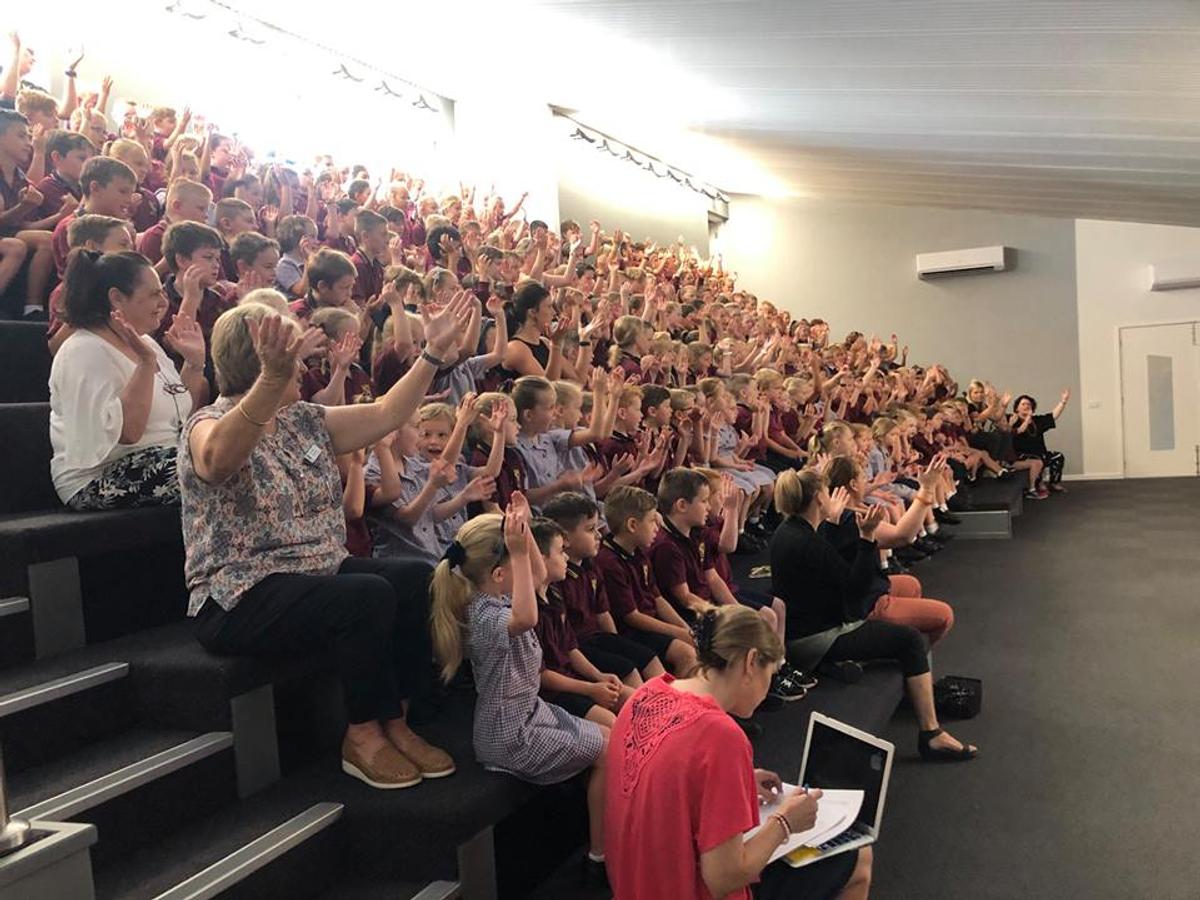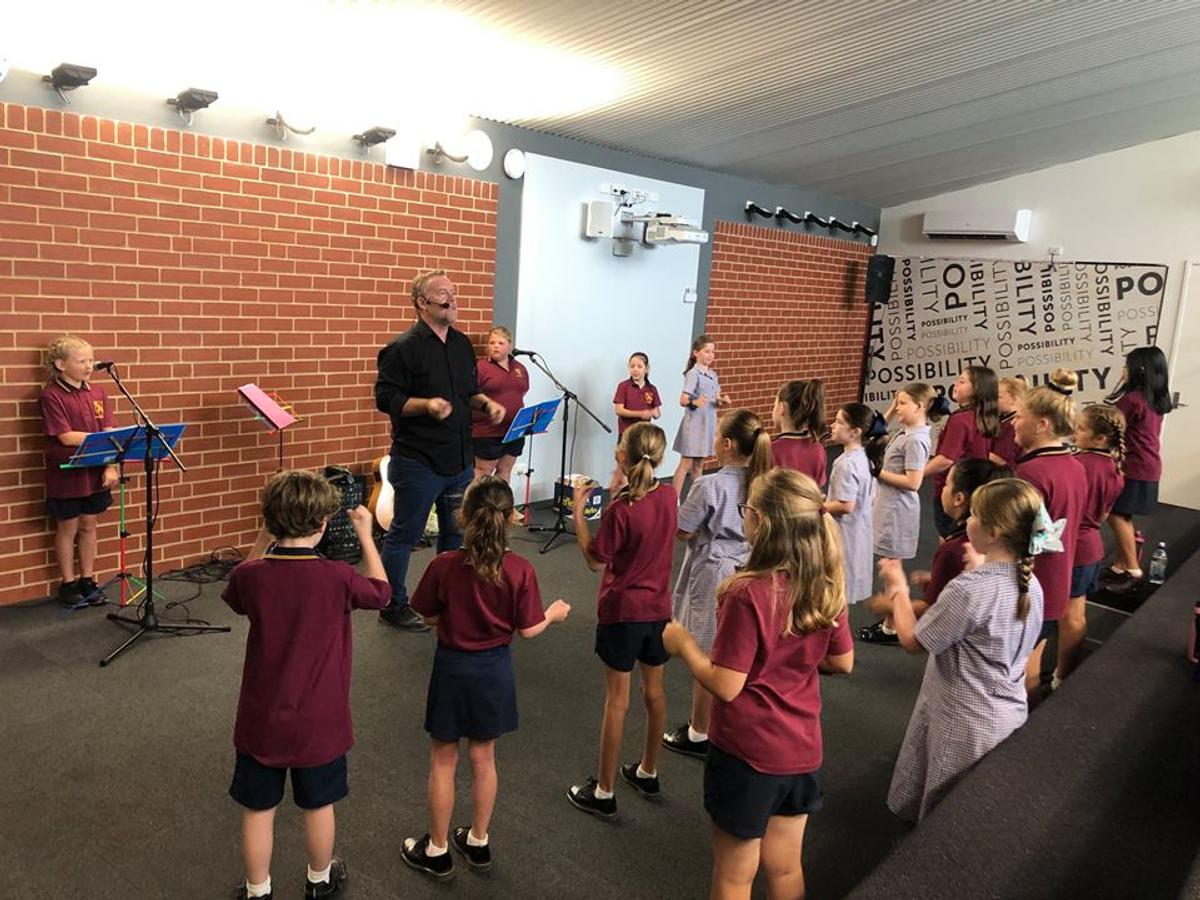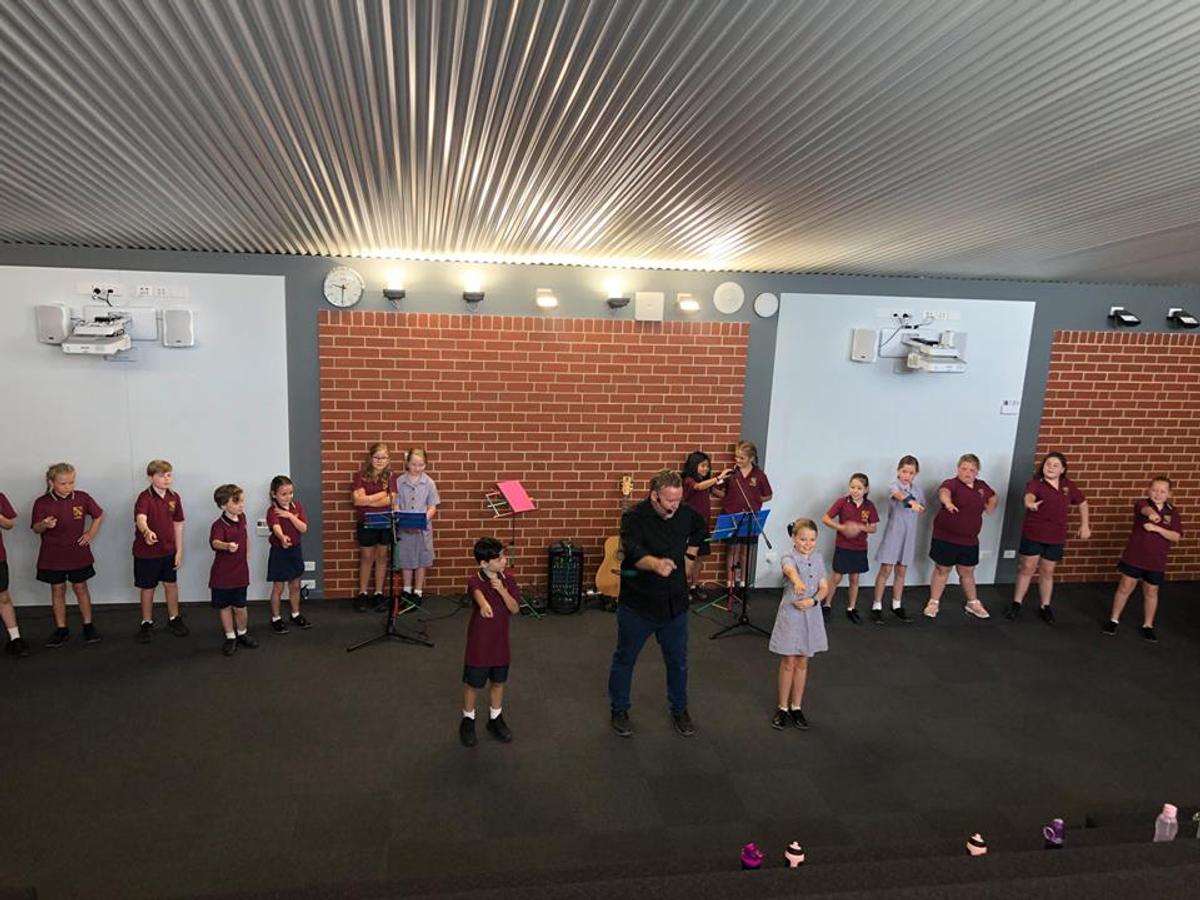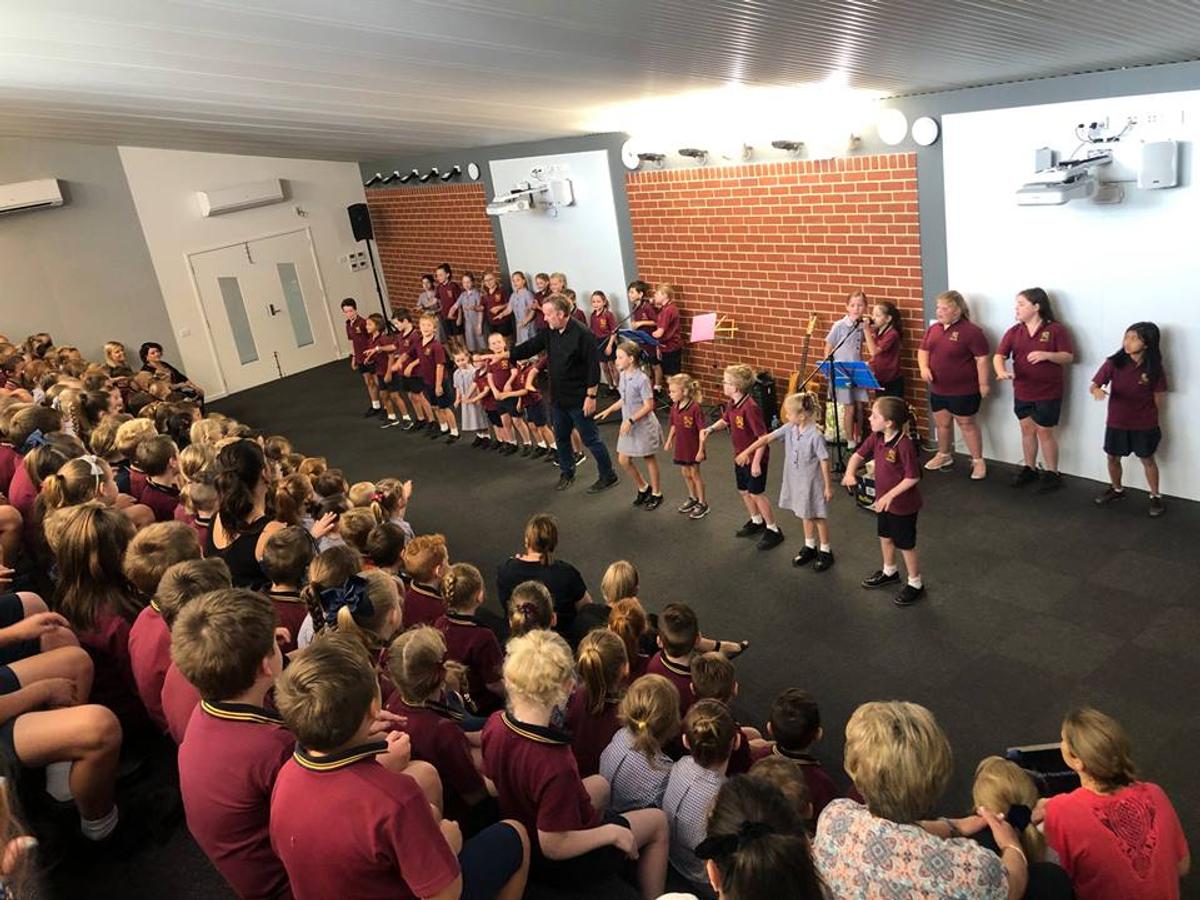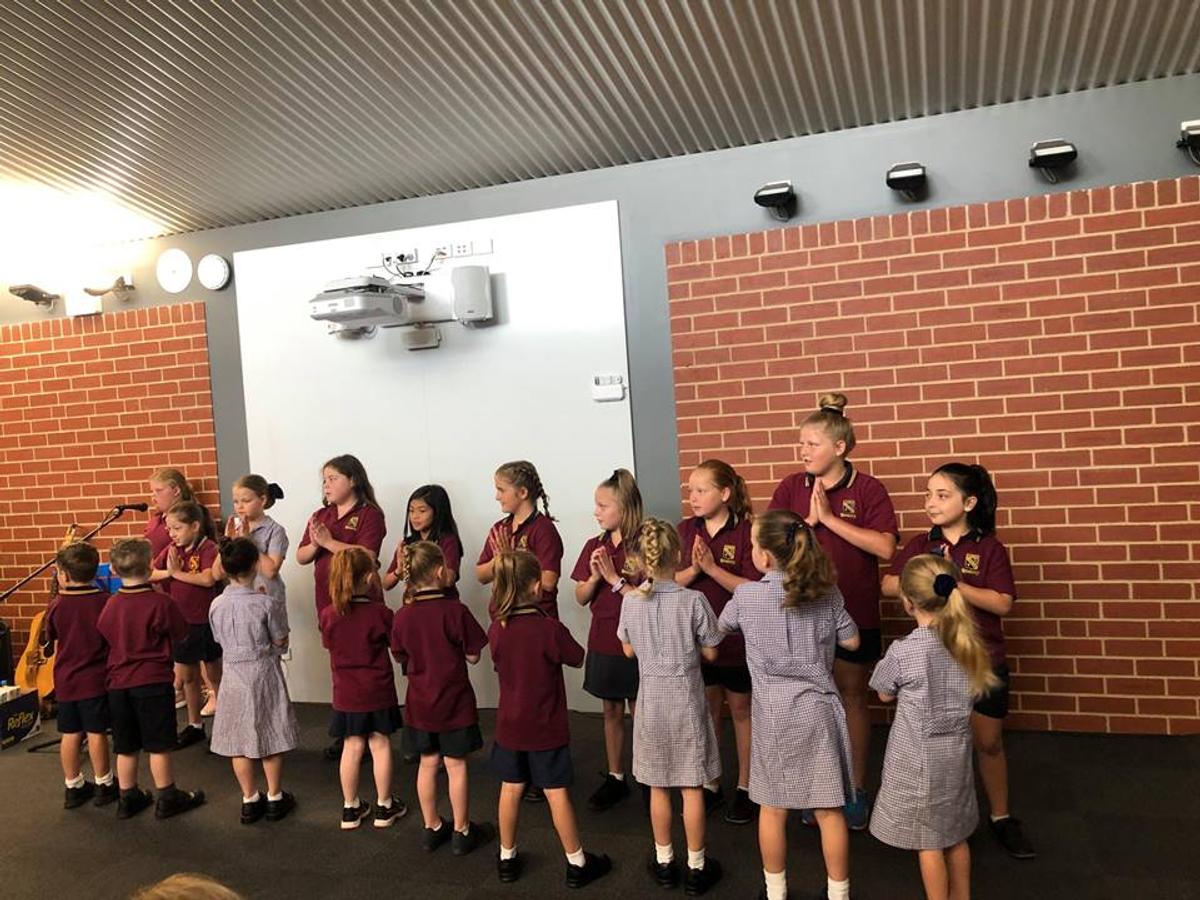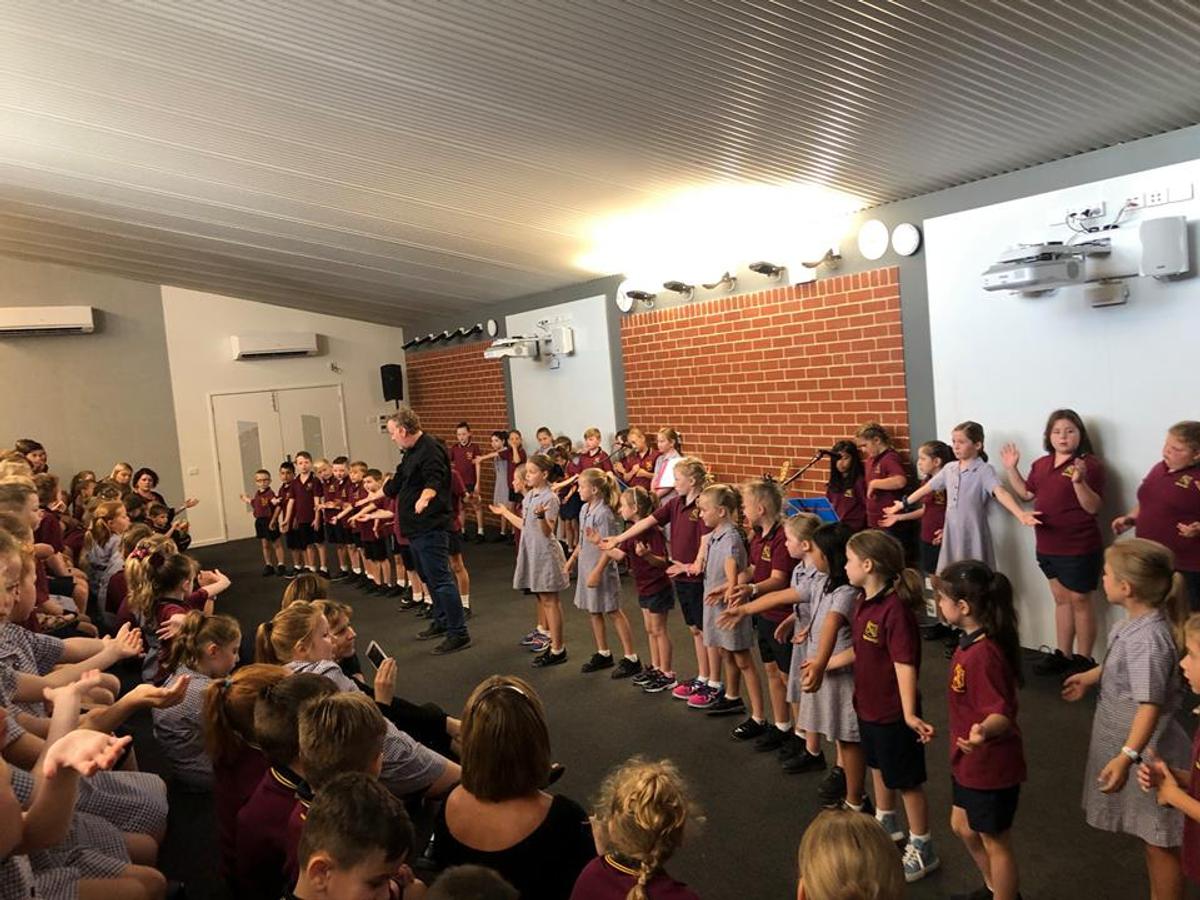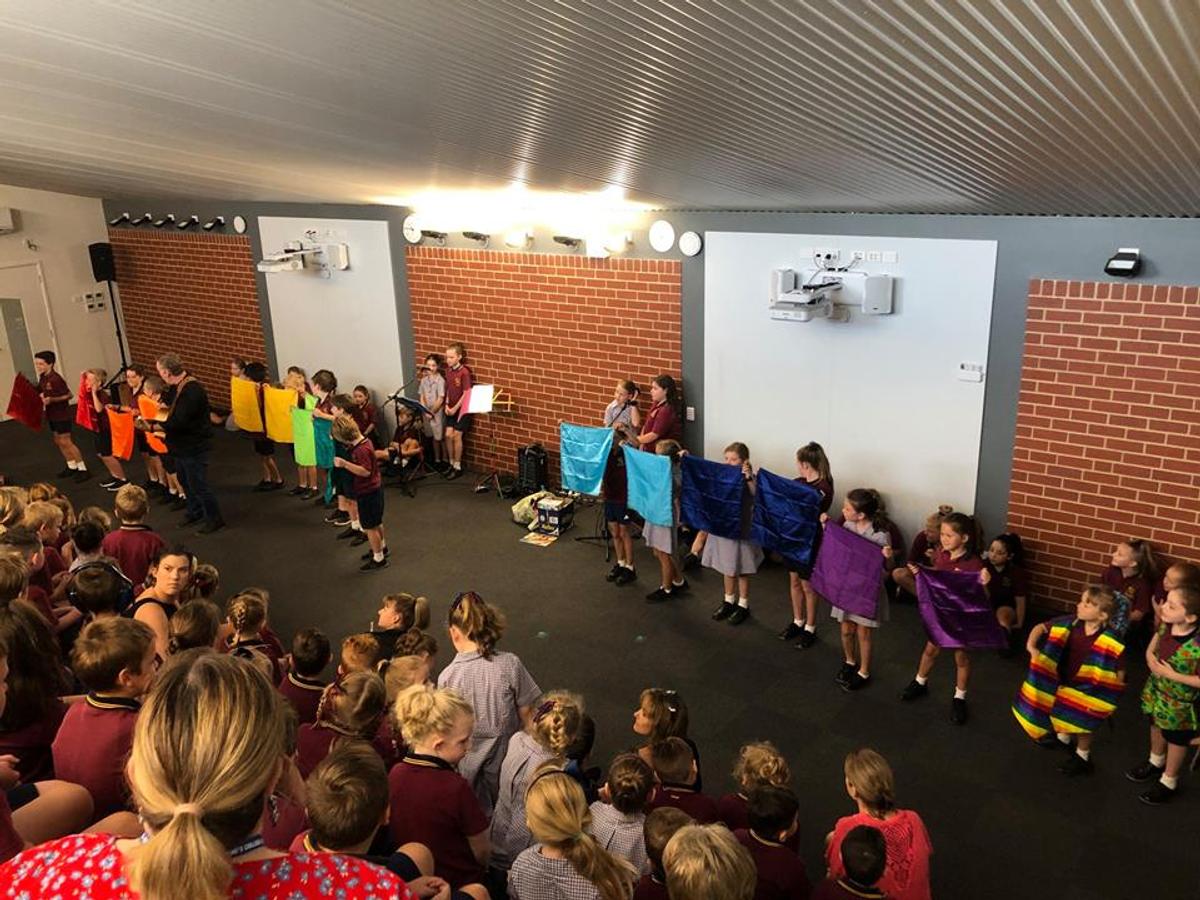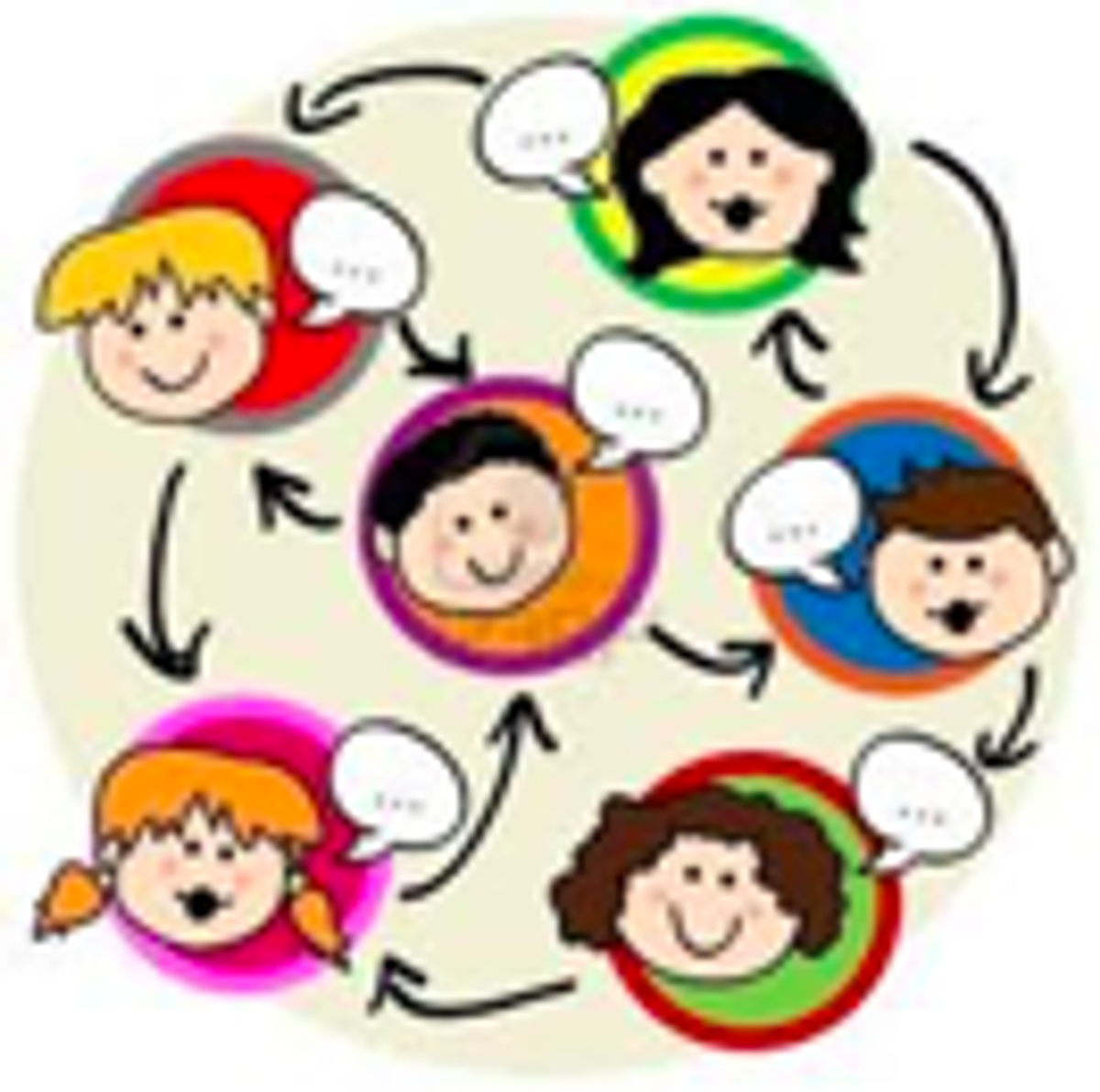F-4 Community News
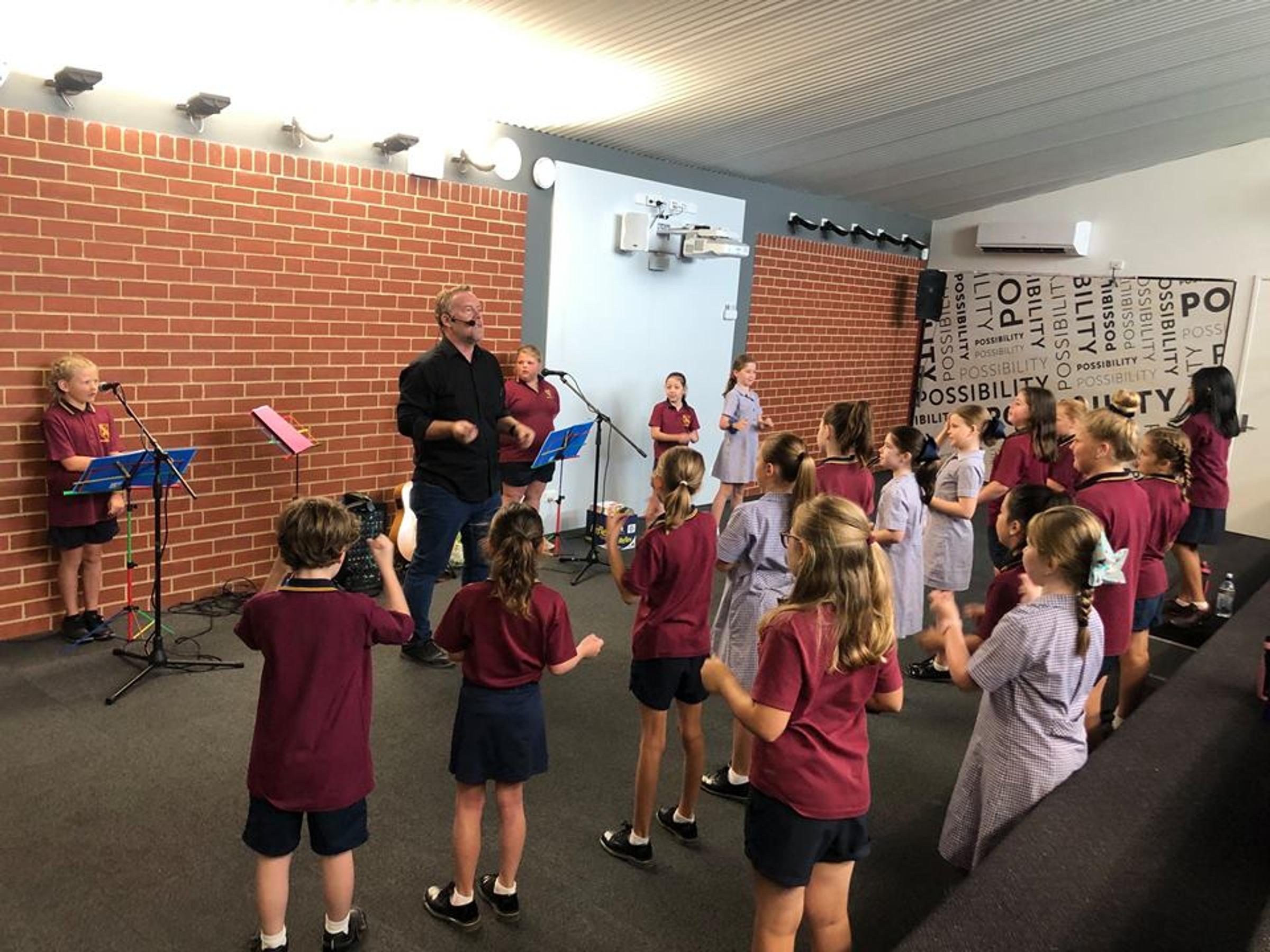
Andrew Chinn Concert
Our F-4 students took part in a concert by visiting performer Andrew Chinn this week.
Children's Chatter Matters
To best prepare our children for the language and learning demands of the school environment, they need ample time and opportunity to engage in meaningful interactions with their family.
Research suggests that the types of questions we ask and the quality of discussions we have with our children (at any age) are linked to school success. As children progress through the grades they must learn to use extended discourse in telling stories, giving explanations, reporting, expressing an opinion or writing an essay. Asking children “if, why and how” type questions allows them to deepen their thinking and prepare longer and more complex responses. It makes sense to build their confidence with extended discourse gradually, beginning with simple oral tasks.
Our school’s Speech Pathologist has provided many 'family friendly', fun oral language tasks aimed to enhance learning and literacy skills. You’ll find these in our fortnightly newsletters so look out for them!
We encourage you to set some time aside each week so that you can get the most out of your interactions with your child. In a busy household, sometimes the car is the best place for these focused activities. The key ingredients for a creative interaction are a time, a place, a willing talking partner or audience and an engaging topic or activity.
If your child is reading a particular book at home or in class, try to incorporate words or ideas from that text into your activity. For example; if you are building your child’s use of describing words, select a character from your child’s reader to describe. Encourage increasingly expensive words such as the beautiful, gorgeous, stunning and breath-taking princess.
Positive communication experiences at home help children feel accepted and valued. Growth in spoken language skills will build children’s self-confidence and help them learn to negotiate social interactions at school. This often transfers to other aspects of their learning and life.
Ten activities will be provided each term focusing on key areas of oral language supporting literacy, learning and socialising. Feel free to adjust these activities according to your child’s year level.
The following link is to the most comprehensive website available that provides parents with activities that are free, easily accessible and enjoyable. Each activity has been carefully selected to reflect the highest quality, up-to-date research evidence on early literacy development. There is also advice for parents who are concerned about their child’s reading and language development.
http://www.fivefromfive.org.au/parent-resources/
If you have any questions you can contact the Speech Pathologist through the Selga Langley at school .
Good luck and most importantly, enjoy this very special time with your child.
Term 1: Phonological Awareness Activities
Activity 1: SYLLABIFICATION: The Train Game
Let's pretend we are on a train. Copy the train driver (teacher) as he/she calls out the names of places we will visit. Select fun sounding multi-syllabic words for the children to say and clap out the syllables. For example: Stopping all stations from Toot-gar-ook to Wan-ga-rat-ta. or Next stop Dim-boo-la. Or Do you want to go to Win-ky-woo or Tim-buc-too?
Activity 2: SYLLABIFICATION: Longest Word
Ask the children to think of the longest words they know. Demonstrate the length, clapping out the beats or syllables caterpillar, encyclopedia. When you notice long or interesting sounding words, have fun with the children, repeating and breaking the words up into their beats. Eg. Cat-a-ma-ran. Be aware that some children will still be thinking that long word refers to the meaning of the word and might suggest train as a long word!

